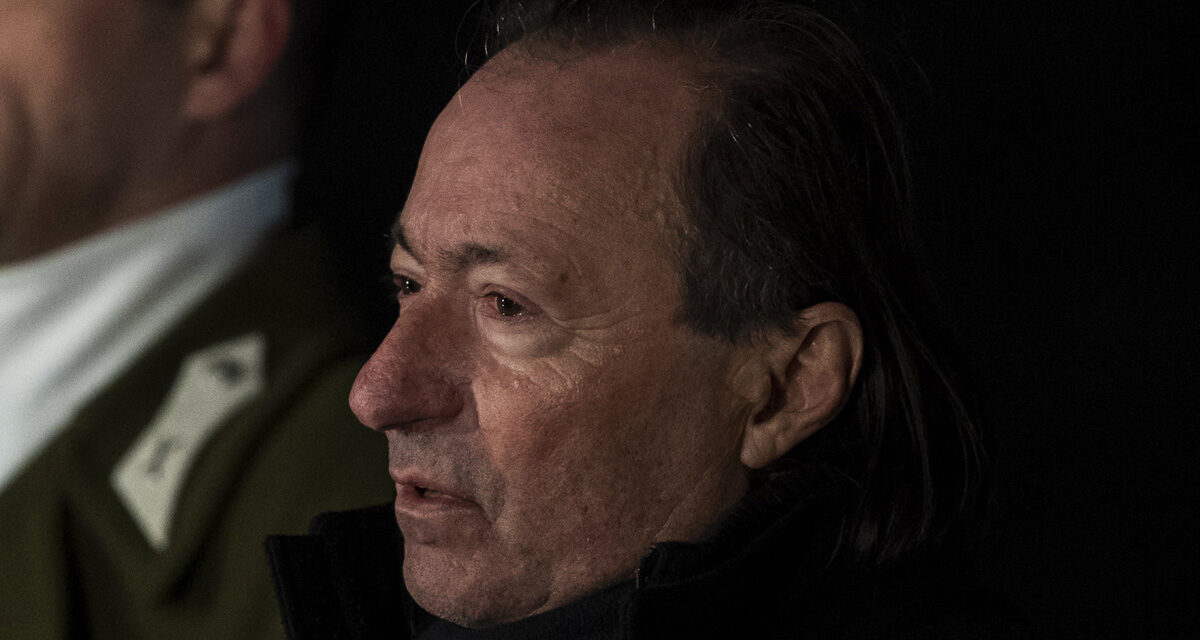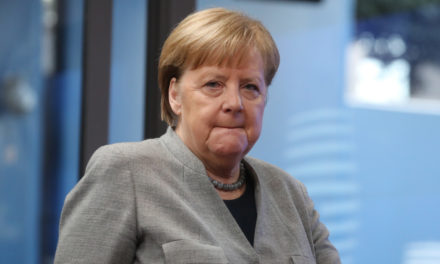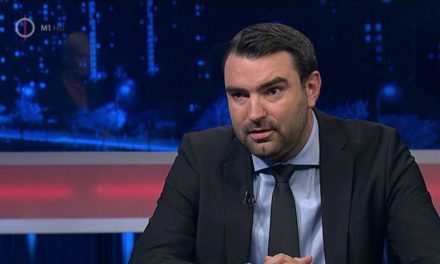The massacre and the war are taking place before our eyes, and every day we are faced with the depraved assassins who threaten governments, EU committees, companies and international organizations. They are also assassins, and even more dangerous than those who kill with a pistol in hand.
The Prime Minister of Austria, who brought the Austro-Hungarian Monarchy into the World War, was called Count Stürghl. Of course, the main responsibility was that of the ruler, József Ferenc, but Count Stürghl's committed support for the war also put a lot of pressure on the lat. Count István Tisza persuaded the Hungarian Prime Minister until he gave in and the ultimatum and then the declaration of war could go to Serbia.
Count Stürghl was shot in a restaurant in Vienna in 1916 by an Austrian socialist named Friedrich Adler. An assassination also served as a pretext for the war, a certain Gavrilo Princip shot the Austro-Hungarian heir to the throne Ferenc Ferdinand and his wife in Sarajevo. In the tense period before the war, representative Gyula Kovács in the Hungarian parliament shot the then speaker István Tisza, then on October 31, 1918 Count Tisza was murdered under the direction of Pál Kéri and József Pogány. Representative Kovács was acquitted by the court as unaccountable. He died in California in 1963.
The assassin of Count Stürghl was not executed, Ferenc József was not even alive at the time of his trial (he died in the fall of 1916), IV. And King Károly pardoned the assassin, so he took advantage of the confusion of 1918, left the prison with a smile and was able to continue promoting his socialist ideals.
In the eyes of many, he also became a hero, as the first person to act against the hated war. That he was an ordinary murderer? What to do: progressive democrat, socialist, even communist.
He died in Zurich among soft pillows in 1960!
In the same year, Pál Kéri also died, who was also not executed (just like none of the alleged perpetrators of the Tisza murder), he was "triggered" by Moscow, and after leaving there he died in the United States as "the last old fugitive" (Faludy George).
Pogány did not do so well, he was murdered by his own comrades in Moscow in 1938. I don't know how Count Stürghl is remembered in today's Austria, Princip is regarded by the Serbs as a national hero, and there was a time when the Czechoslovak government congratulated the Yugoslav people in a ceremonial telegram on July 28 for committing the great deed (insidious murder).
Last year's snow is gone, but there are several statues of Princip in Serbia. After all, it's not easy for Serbs either...
The Treaty of Versailles was signed by Foreign Minister Hermann Müller on the German side, he was a Social Democrat, but this was no longer considered as big a crime as the signing of the Compiégne armistice by Vice-Chancellor Matthias Erzberger.
This was considered one of the most painful "chest punches". He was killed by an assassin in 1921.
Later, László Fényes "revealed" in Népszava that three Bavarians were holed up on the plot of Gyula Gömbös - an opposition politician at the time - and that they could have been Erzberger's killers. This László Fényes was a defendant in the Tisza trial, but due to lack of evidence, he was released after two years of pretrial detention. Soon we find him in Austria, where in 1924 an assassin named Jaworek shot Chancellor Ignaz Siepel, a Catholic priest who did not die, so much so that he became Chancellor of Austria again two years later.
But the country just couldn't stabilize - like Hungary during István Bethlen's prime ministership - the Marxist uprisings followed, and then the National Socialist counter-thrusts. It was also a hot summer in 1927, with at least a hundred dead in Vienna, and then also in 1934, a quasi-civil war. In the process, Chancellor Dollfuss was also killed, whose assassin was captured and tied up, which is all the more interesting because he was a member of the German SS, but Hitler did not see the time to intervene.
He had been in power for barely a year, and he was busy liquidating Ernst Röhm and the SA leadership and regulating the storm squad, the million-strong SA. This was a serious task, much more important than the attempted coup in Vienna. Europe and Germany also watched with bated breath and appreciation the denigration of SA. This showdown lent Hitler an almost statesmanlike grandeur.
Many people clicked: yes! It was just murder. And nothing of value is ever born from murder.
In 1934, there may have been some bad suggestions in the world, because in that year the Yugoslav King Alexander and the French Foreign Minister Barthou, who was sitting in his car, were shot in Marseilles. They almost never mention that the assassination had three more victims besides them, two women and a policeman. And the assassin also died, a certain Velicsko Dimitrij Kerin, a cold-blooded Macedonian/Bulgarian assassin, a member of the ORIM separatist organization. Croatian separatists, members of the USTASA movement, were also involved in the assassination, three of whom were eventually sentenced to prison in France. When the independent Croatian state was established in 1941, and France was already under German occupation, they looked for their comrades, but only one of them was alive. Not a good ratio…
This year also saw the Kirov murder in Leningrad.
Kirov, the communist first secretary there, was assassinated by a disgruntled comrade named Nikolayev. It is not entirely clear why he was dissatisfied - he did not advance in the ranks, he did not receive adequate food allowances - but what is certain is that Stalin used the murder to start the largest peacetime carnage in world history.
During this carnage, the assassin also died, and within a few months almost everyone with whom he had any connection. In addition, it is a significant part of the party and state, as well as the general staff of the army. It is typical that Hitler valued this "cleansing" the most.
Assassinations and murders in themselves advertise unbearable self-judgment, violence, and inhumanity. It doesn't matter who the victim is. Disgusting, aberrant Nazis, or handsome, empathetic Bolsheviks. A king, prime minister or dictator who is averse to political diversity. World-savior socialist, wild communist or humanist citizen, noble politician working for his nation.
In our generation, the astonishment that the II. We felt it on the day of the assassination of János Pál. From that moment on, the world changed for me as well.
I admired the Pope's natural relationship with the assassin, Ali Agca, who was a professional assassin. (At that time we had no doubt that the Bulgarian "thread" actually led to the Soviet Union.) And I also understood that he asked for amnesty. True, I approved that he was imprisoned for another assassination in Turkey. But he was released in 2010. He is sixty-six years old.
The assassination of Ronald Reagan was also shocking.
I liked the president, his humor and determination, we owe him a lot. And that the assassin missed, even though he fired six shots from five meters away. Or five from six meters. In addition to the president, he injured three other people, one of them permanently. His name was John Hinckley and he was twenty-five years old. He had no political motivations, he wanted to impress an actress whom he saw in the terrible movie Taxi Driver He was admitted to a mental institution, but has been free for eight years. I hardly remember the assassinations of the Swedish, Serbian, Israeli, and former Japanese prime ministers, even though they were in recent decades. And so much more amazing nonsense!
The people I mentioned here all committed their crimes with a revolver in hand. For conviction or for money, it doesn't matter.
The Slovak Prime Minister was recently shot. We are still getting our heads around this, but everyday violence is becoming almost commonplace in the world. Mass murders from American schools to concert halls in Moscow, from newspaper editorial offices in Paris to Norwegian youth camps. Stabbings, intentional trampling, rape, vandalism. An everyday occurrence.
Meanwhile, the massacre and the war are taking place before our eyes, and every day we are faced with the depraved assassins who, at the head of governments, EU committees, companies and international organizations, threaten to bring war upon us and all that comes with it. They are nothing more than assassins, and even more dangerous than those who kill with a pistol in hand. Holding their hands, quieting their hot-blooded followers, this is the most important task these days.
Featured image: MTI/Márton Mónus













